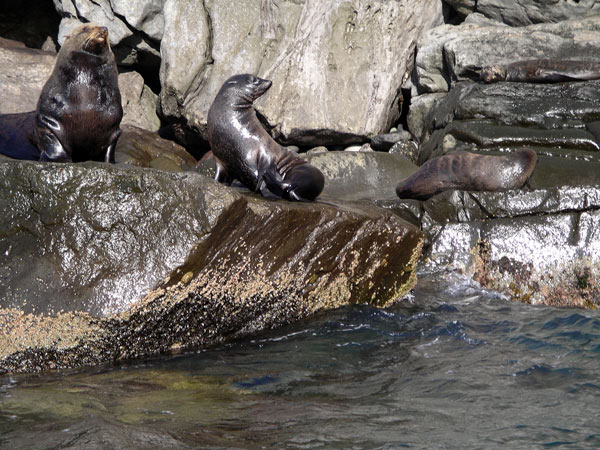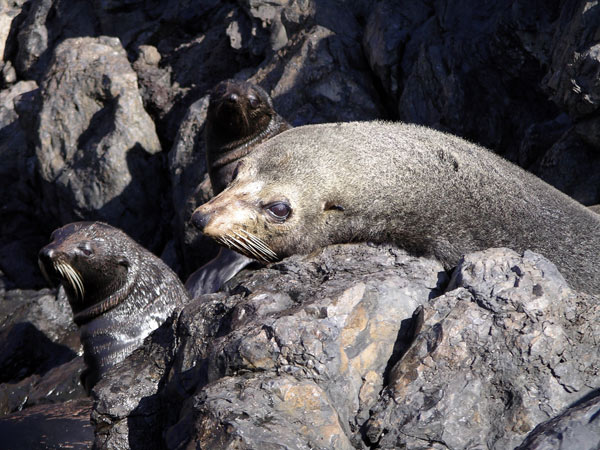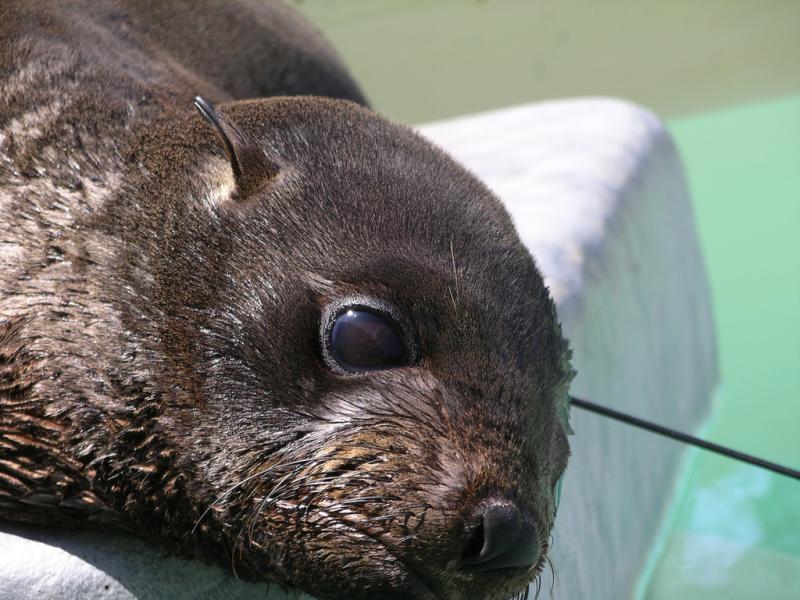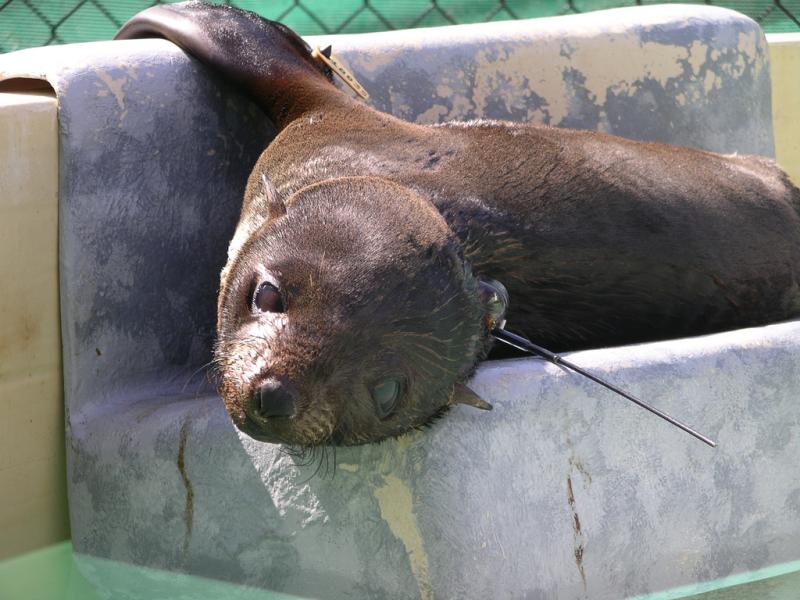Wildlife North America . com North American Animals - mamals, birds, reptiles, insects |
Guadalupe Fur Seal (Arctocephalus townsendi)
Guadalupe Fur Seals photographed on Guadalupe Island. The male (on the left) is much larger than the two females in this photo, and you can see the difference in girth about the chest and shoulders. On the female in the center you can also see the pointy nose characteristic of fur seals. Photograph by Gina Sanfilippo. Some rights reserved. (view image details) 
A bull Guadalupe Fur Seal with two of his females in the background. Photographed on Guadalupe Island. Photograph by Gina Sanfilippo. Some rights reserved. (view image details) 
Female Guadalupe fur seal pup that was rescued and brought to the Marine Mammal Center in the Marin Headlands, California. It has a satellite tag attached to her back. Gina the photographer is a volunteer at the Centre. Photograph by Gina Sanfilippo. Some rights reserved. (view image details) 
Female Guadalupe fur seal pup, Marine Mammal Center in the Marin Headlands, California. Photograph by Gina Sanfilippo. Some rights reserved. (view image details)
GUADALUPE FUR SEAL FACTS
DescriptionThe Guadalupe Fur Seal has a brownish gray back with silvery and yellowish-gray mane on the nape of the neck. They have pointed snout with ruse color on each side. The eared seals (sea lions and fur seals) have small external ears. They can pull their rear flippers up under their bodies and use to them move around on land. Size Length: males 1.9 - 2.4m; females 1.4 - 1.9m. The male is much bigger than the female. Adult males weigh about 124 kg, females weigh about 50 kg. Environment rocky coasts Food fish and small marine invertebrates such as squid. Breeding One pup is born after a gestation of 12 months. The pup is weaned after about 11 months. Range From the Channel Islands in California in the north, to Baja California in Mexico. Only breeds on Guadalupe Island, 290 km west of Baja California. Notes The Guadalupe Fur Seal is the rarest fur seal, and the only species of Arctocephalus found in the Northern Hemisphere. Conservation Status The conservation status in the 2004 IUCN Red List of Threatened Animals is "vulnerable". Classification
Home | Mammals | Reptiles | Birds | Insects | Privacy Policy | Disclaimer | Contact Us |